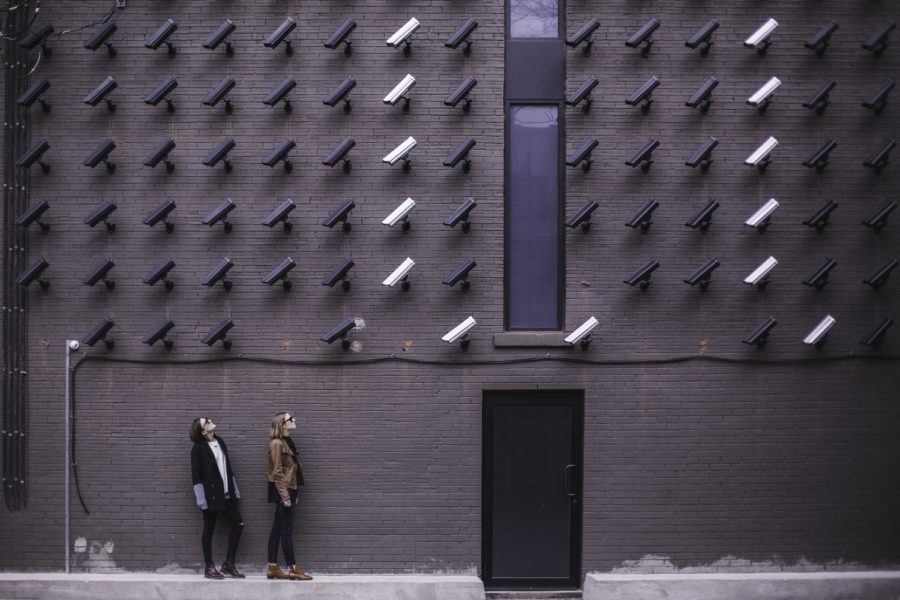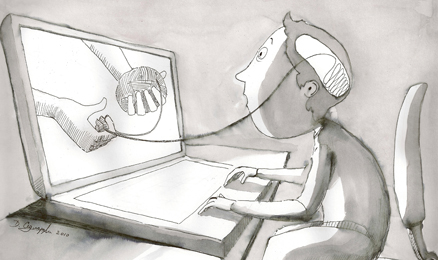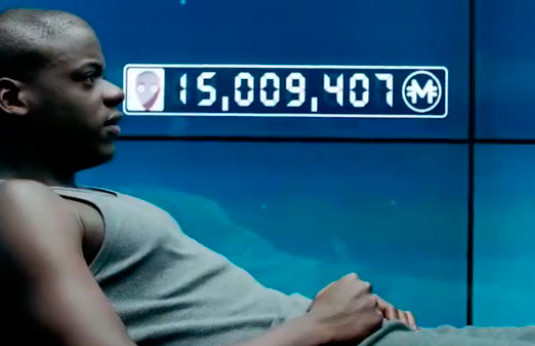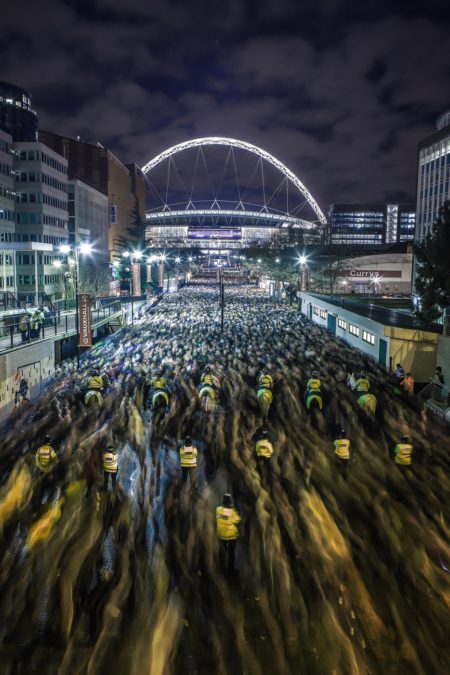A possible scenario for the development of events in the future without any secret of your personal life and why this should worry you …

Matthew Henry, Unsplash
Original material
Three things to fear:
- The Chinese government is using information to control the country's population. By creating a “firewall” around China and replacing blocked global services with controlled local counterparts, the government is able to create a digital profile of the actions, connections, statements, deeds and misdeeds of each person.
- Recent coverage of the situation with Cambridge Analytica and Facebook showed how much Western corporations know about us without our knowledge and that companies manipulating public opinion operate in such a way that understanding of the principles of work is available to a very narrow circle of people, and legislators are definitely not are among them.
- Quantum computers will soon be able to break modern encryption by “sharing” everything that we considered secret and securely “hidden”. And more powerful computers will be able to search and correlate this data in retrospective digital time. Yes, today's quantum computing is still far from such heights, but compare your current smartphone with your first PC and assume that computers will similarly become more powerful and functionally advanced sometime in the future.
In each of the three scenarios, even if not all at once, there is an unprecedented threat to the security of private information. We are entering a post-privacy era.
Most of all, I sympathize with our children. They grow in a world where everything is connected to the network, everything is visible and distributed. They are obsessed with their image, worried about who follows them and who likes their posts. They suffer from virtual bullying and all the collective consciousness and memory of humanity is immediately available to them through the phone. They do not grow up gradually from year to year, instead they see in the moment all human horror, harsh reality, fictions and conspiracy theories, the whole history of past years and current events, all at once, regardless of whether they are ready or can they handle this. Their childhood and integrity fell as the adults around them threw the contents of their consciousness onto the Internet and gave the children a tablet as a window to its darkest corners.

A source
Beyond the understanding of children is this: as they grow up, they will be the first generation, whose entire life will become a searchable digital profile. Everything that young people do is now being recorded. Not only things they know about, but also information from surveillance cameras, school performance, photos of them from nightclubs, CCTV recordings of children buying alcohol with fake documents, their Internet search history, their addictions and profiles in social networks. The Internet will not only record their social circle, but also mark everyone they have ever known or interacted with digitally.
Although this information is not yet available for search and is (so far) private, it exists and will exist forever in a form that modern society is absolutely not ready to understand. Moreover, a baby born in 2020 in China from the first days will be part of their social rating system, within which every word and every deed will be tracked and noted.
What we really should be afraid of is a time when computers of the future will “be able” to search for any information from any period of digital history, and quantum computers will be able to break encryption. Suddenly, all doors can swing open.
We should wait for the moment when the future version of Google will be able to find all images with a single face. Not only photos on Facebook, but pictures from video files, footage from security cameras, background frames of other people's videos, photos from the crowd marching at the rally.
What happens when the self-willed youth of today decides to go into politics 20 years later, and the Internet of the future “shows” a photo of their teenage years, in which they will be captured during attending dubious political events that shaped their beliefs?

A source
A future in which everything is public achievement will be like all modern scandals woven into one big social psychosis. You cannot imagine a database that contains every image and video of your face ever taken, when all these pictures can be correlated with a map and marked every place you visit and every person you meet on the way. This digital profile is able to tell you where you were at a given time, it can destroy alibis, give away secrets, cross out testimonies and stories. In the future, not only will there be no privacy – any privacy you had in the past will also disappear.
You, of course, object, then this will not happen, because most of the information is private, secure. Our society has a system of checks and balances to protect us from such Big Brother horrors. But this is only temporary. Western states are the prime defenders of people's privacy and control over what governments and corporations can know about us and what they can do with our information. This ideology for the most part developed in post-war institutions and societies as a reaction to the era of dictatorial regimes and within its framework, rules and agreements were created to protect the freedoms for which the war was going. But in these societies, the now resurgent old-fashioned liberal movement is promoting the idea of less government involvement and less control in favor of what they mistakenly call “freedom.”
Regardless of this transition within Western democracies, it is likely that an inconspicuous paradigm from our point of view is that the West is in decline, and the future belongs to countries like China. The Chinese social rating system already prohibits people from traveling to other countries (or fleeing the country, whatever you look at it) and has already put seven million people on the social “blacklist”. It includes the unregulated, unhindered use of surveillance technology and the world's largest facial recognition system used to enable a state to “see” who its citizens are meeting, where they are going, what they are saying, and then use it against them.
By and large, the state will keep track of everything, run information through more advanced algorithms on even more powerful computers, until dissent becomes impossible and there is nowhere to run. How to resist such a system?

Jaanus Jagomägi, Unsplash
It is also clear that in the future we will have more cyberattacks, more cases of using information and communication as weapons. Imagine a future in which your social media profile is hacked, connecting you to any user of the service who has ever saved your name, number, or email address on their phone and kept all records from CCTV, Gmail accounts, and search history. This information is sold or shared with other governments. Suddenly, someone, be it a government, a criminal gang or the army, gets a “map” of your past and can find memories that even you yourself have already forgotten about.
This is the future in which modern children will have no privacy. From their first steps, everything will be recorded and forever associated with them. But they will at least have a chance to plan and adapt to their behavior in life without privacy. What about modern adults? What about what we did when we didn't know what a search engine was? All those nonsense, all the information we created from the beginning of the Internet age that we shared on Myspace and Orkut, those first ugly photos that we uploaded to Flickr and happily forgot? Today's adults were reckless by today's standards at the time, we didn't know that there might be computers in the future that could track and find anything in digital retrospective and put it together.
Representatives of the previous generation could make mistakes, do stupid things that are common for young people, and over time everything was forgotten. This has come to an end.
We grow, computers grow, the treaty that protects us is violated, countries like China become the dominant power. As a result, society is moving towards disaster, after which, suddenly, every byte of data about us will be hacked, published, indexed in the search and fall into the hands of dictators or criminals.
Maybe this moment will herald a change: dictatorial regimes will overthrow democratic ones, which will suffer a grandiose social collapse. Political leaders will be mired in scandals as their activities become publicly searchable. Trust will be broken, relationships will fall apart, many will lose their jobs. Society will try to respond to the unexpected disclosure of everything it can, at the end of privacy. This catastrophe, in which the government, society and economy will suffer, could be the beginning of the emergence of dictatorial regimes into the arena and the establishment of their control. They already exist in a world in which there is no privacy, they will have an information “weapon” at their disposal, which they will use against us. In their societies, people will already know how to live shoulder to shoulder with each other and with the rulers who, in the absence of privacy, “stand between them” and control their lives.
As the last two years have shown, we as a society are absolutely not ready for the end of privacy and the massive use of information as a weapon. We lack rules and feedback, and we still allow information to easily lead us out of you, often without being tested for veracity. We just can't figure out what it will be like when the attacks and leaks of the past year seem like cute pranks compared to the events to come. Regulations, strong political associations and internationalism provide hope for further protection; they create international standards and agreements on the use of technology and information, such as the General Data Protection Regulation (GDPR). Otherwise, we are moving towards a world in which people who create technologies of the future for artificial intelligence, genetics, quantum computing, new search and observation opportunities will not be burdened with ethical and democratic dogmas.
I feel sorry for today's youth. They live in a frightening time when there are fewer secrets. But while their future past may one day become public, they can adapt to their behavior now in order to protect their future selves. I fear for the older generation, who in the past have acted as if they were not being watched or recorded. And decades later, they will learn that their indelible digital footprint could one day be traced by cyber detectives or the all-seeing regime of digital dictatorship. I am worried that the privacy paradigm embedded in the foundations of our society is already dead.
By Tobias Stone
As scary as it may sound, a rational kernel slips in this view of the not so distant future. If regulators become even more actively involved in filtering and searching for information, then the trends described in the material may well move from the category of “horror stories of the society of foil hats” into everyday realities. The digital identity is gaining momentum, companies are more and more aggressively trying to get data, which is why vulnerabilities in applications and services are sometimes discovered 'accidentally', passwords and personal data 'leak'. But what will happen if all the data about us will be controlled by the state / regulator / attacker who hacked the protection?
Interestingly, earlier the topic of privacy was discussed purely in the context of Google and its search, but on the example of this material, we see that now the issue has arisen on a global scale, after several major scandals, society will not forget this topic for a long time. In my opinion, for the better, the sooner these issues are worked through, the better. Subject to the adequacy of methods and measures, of course.
